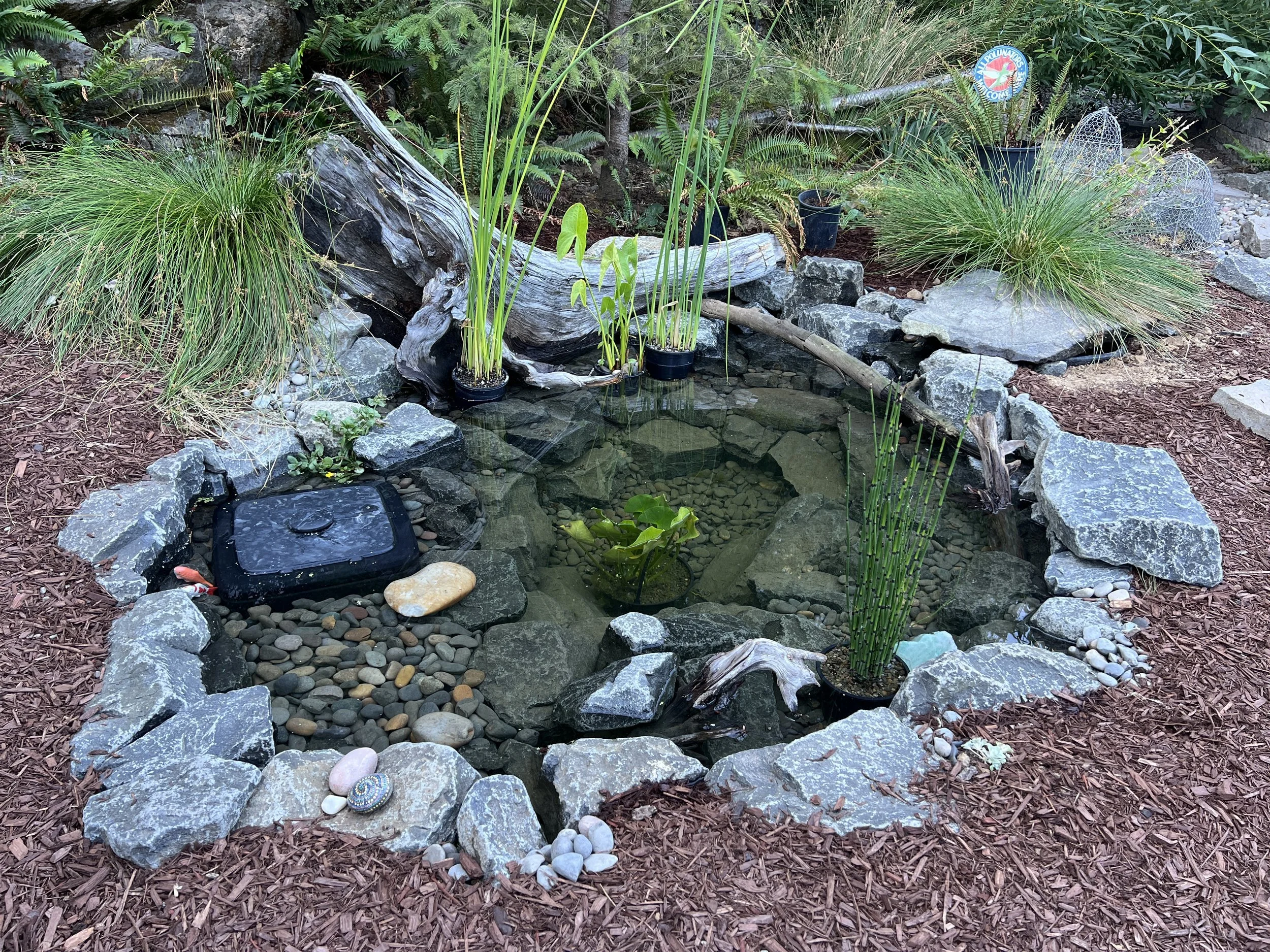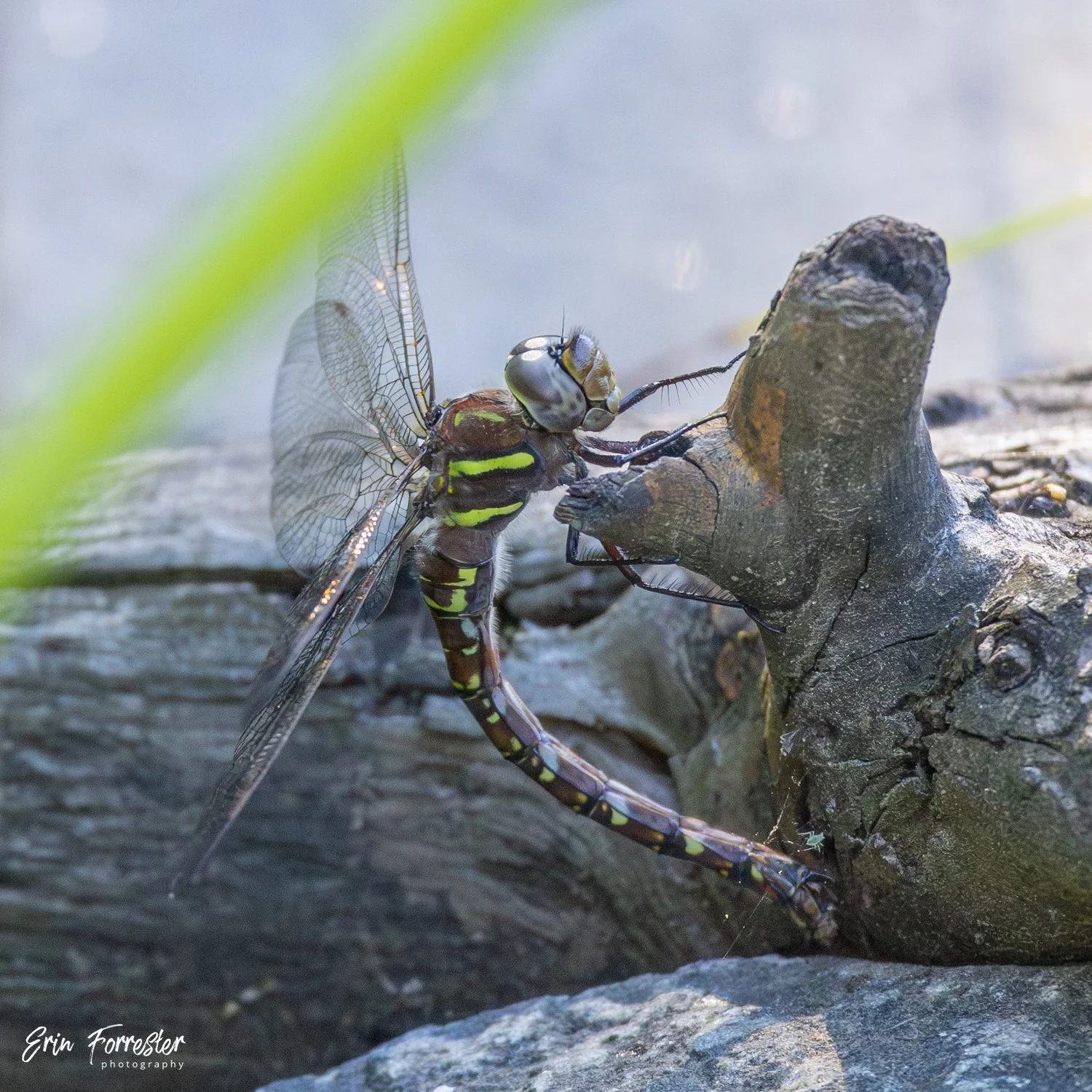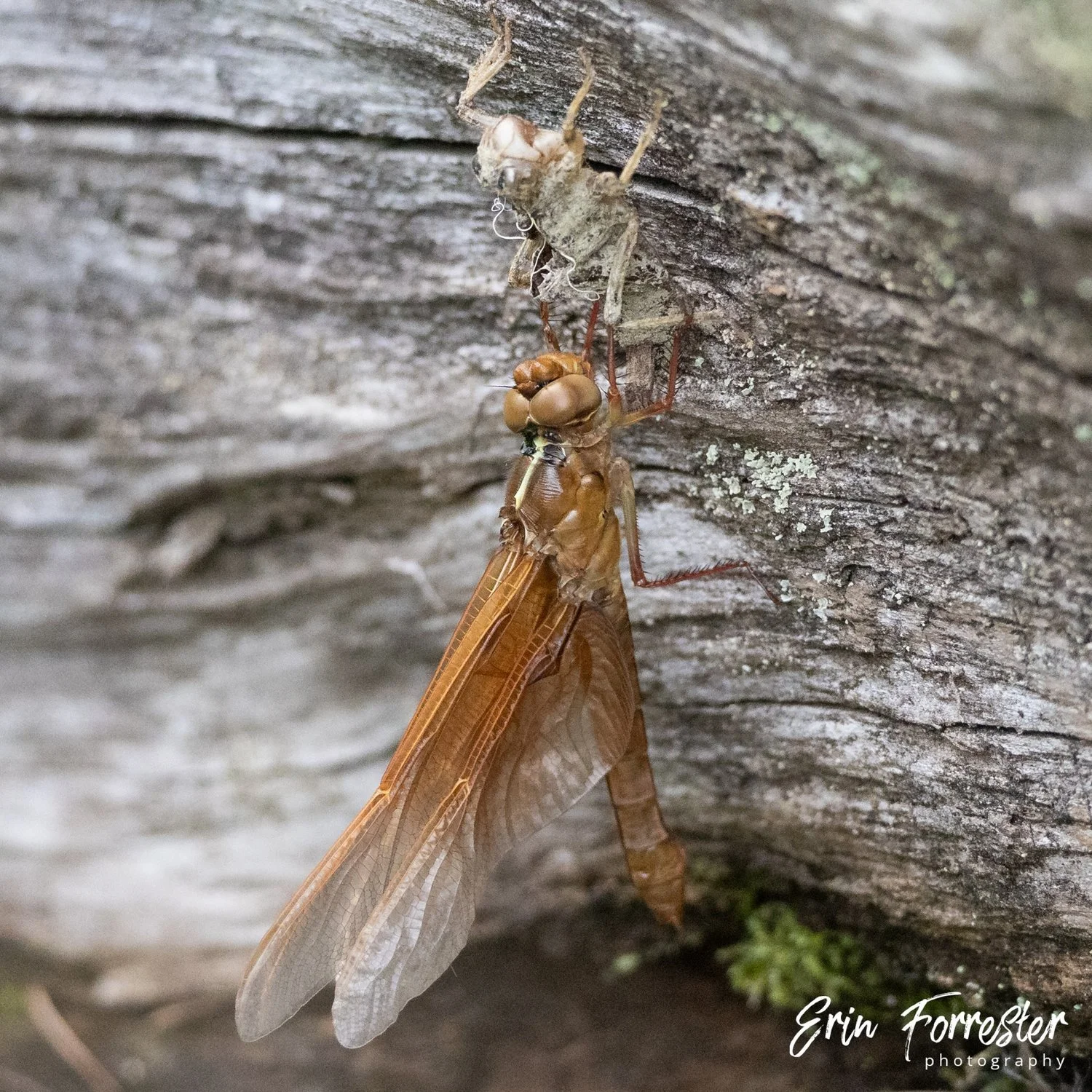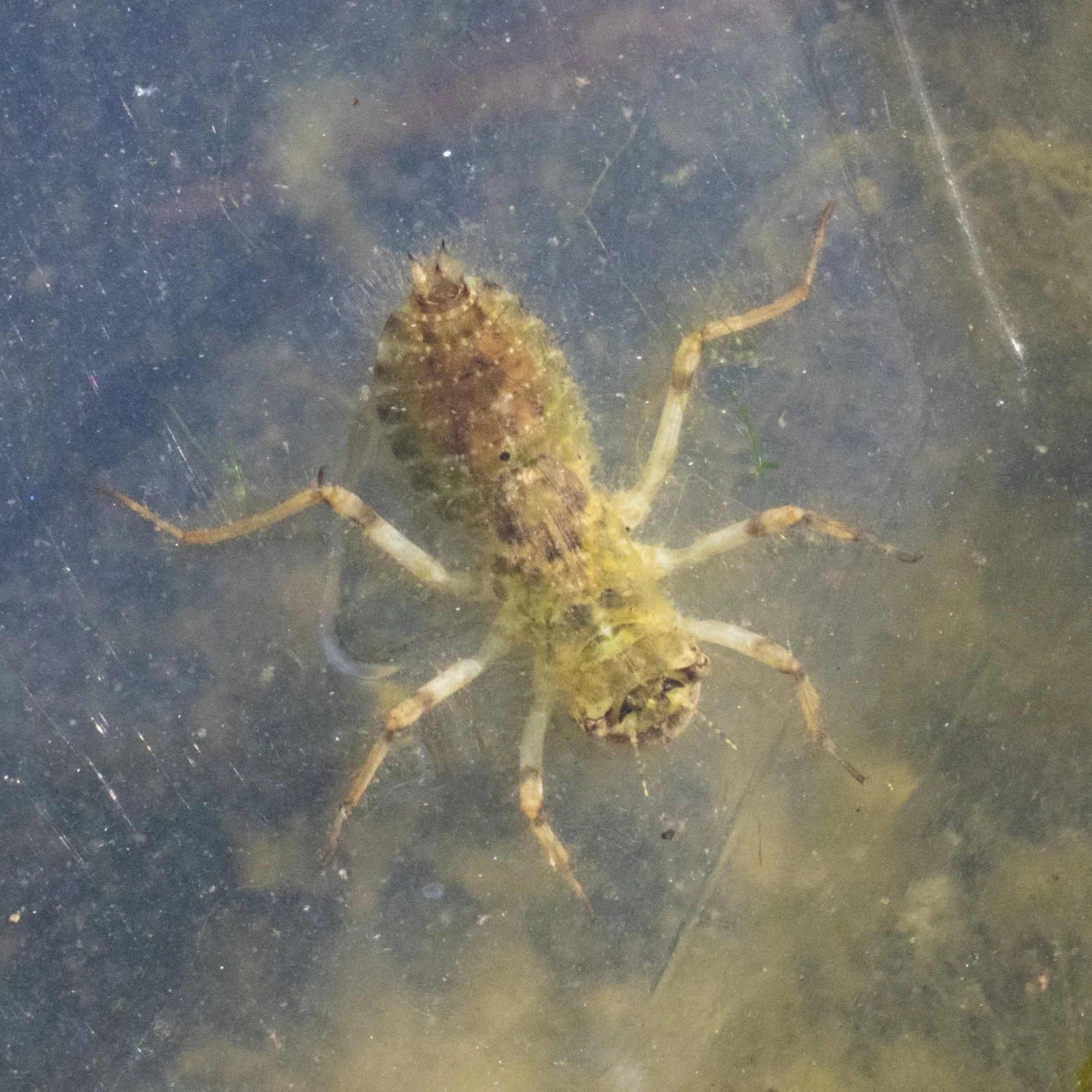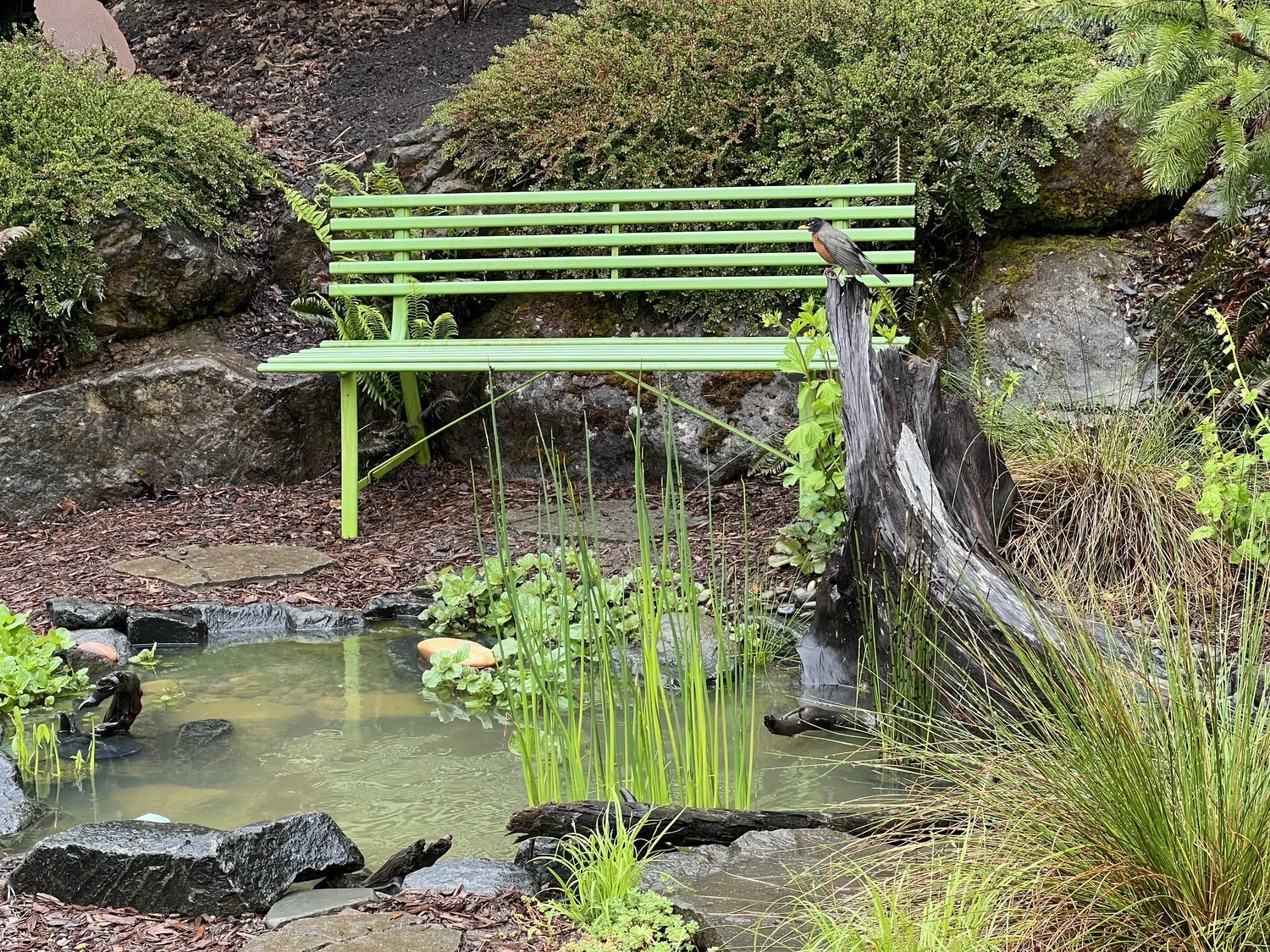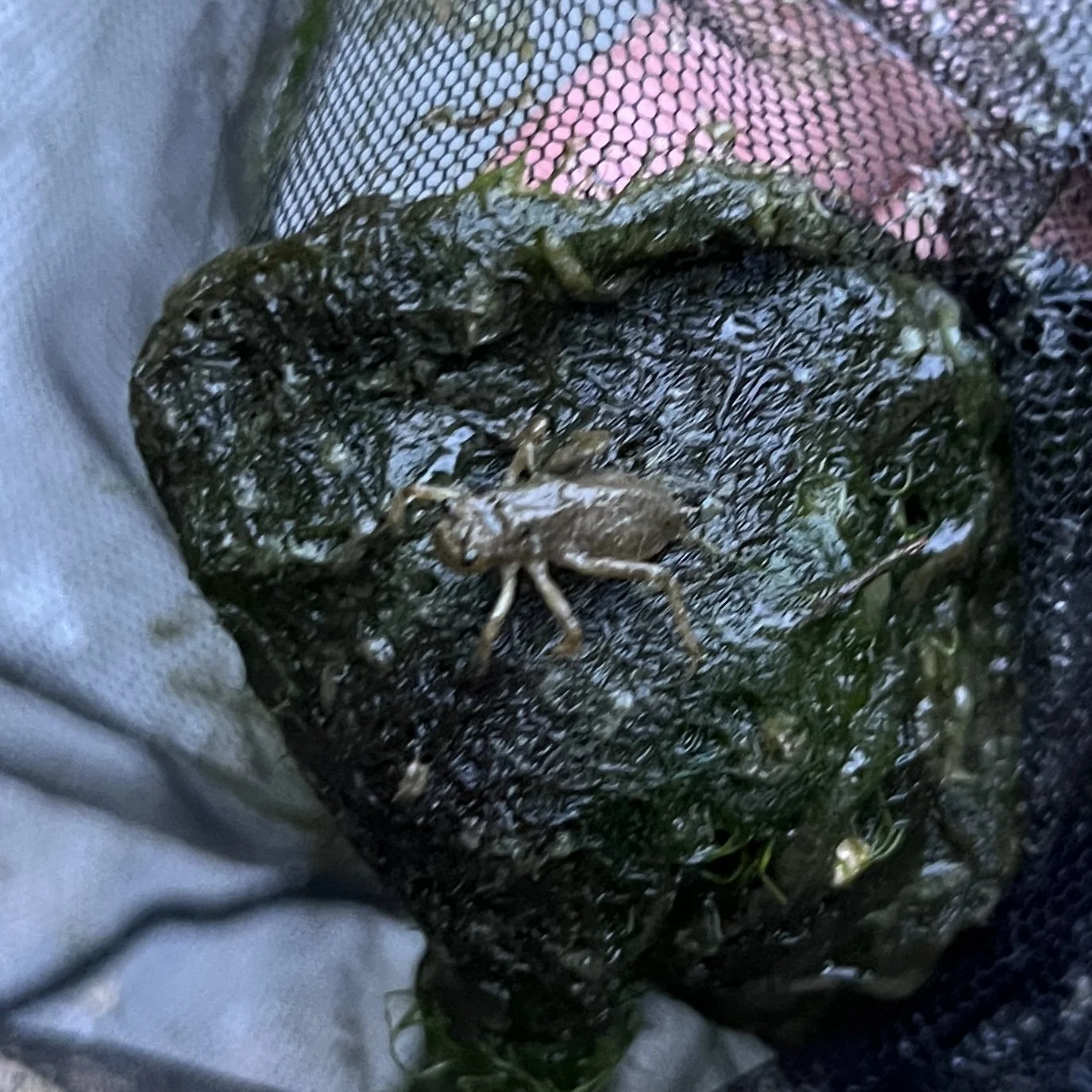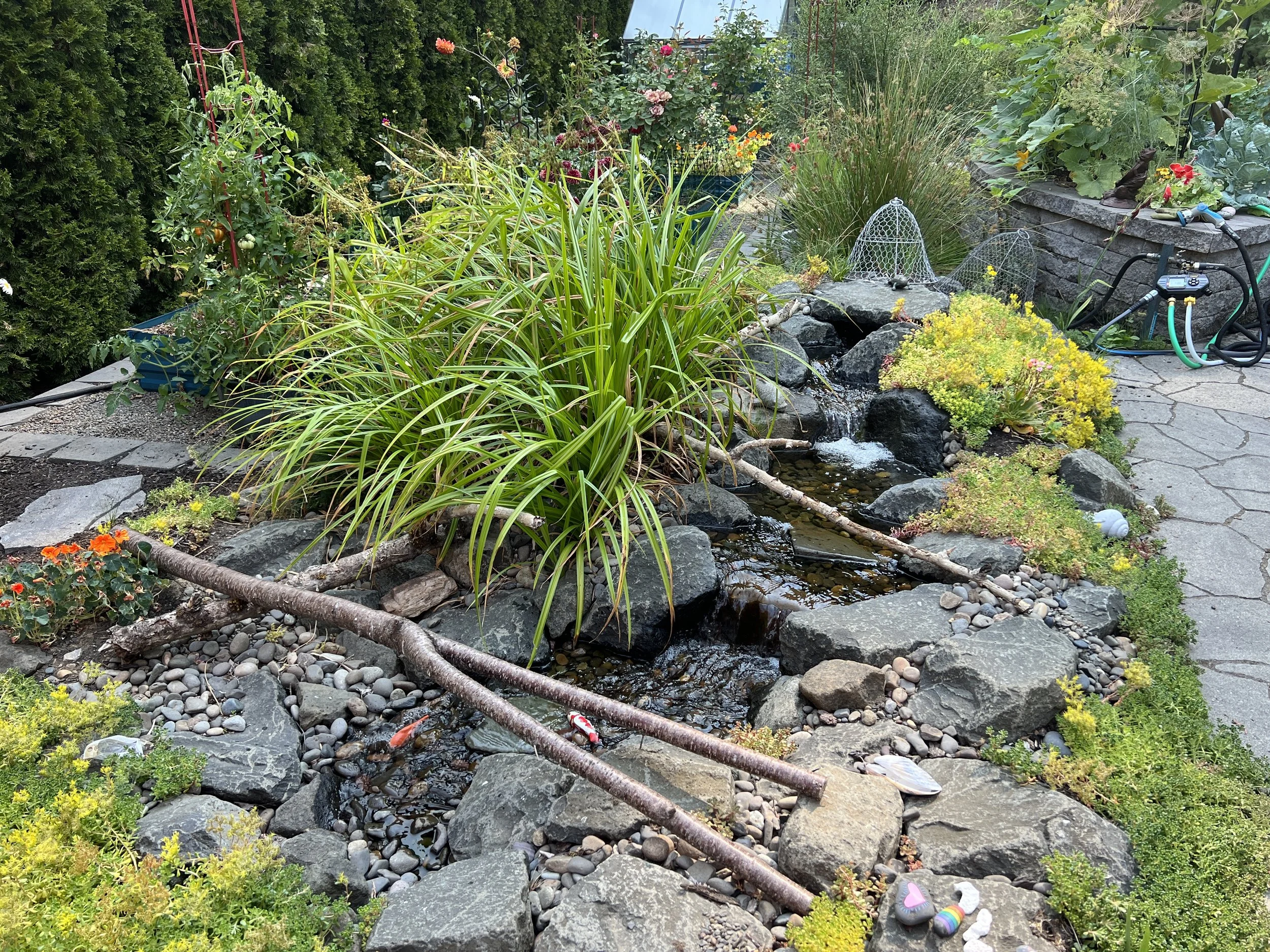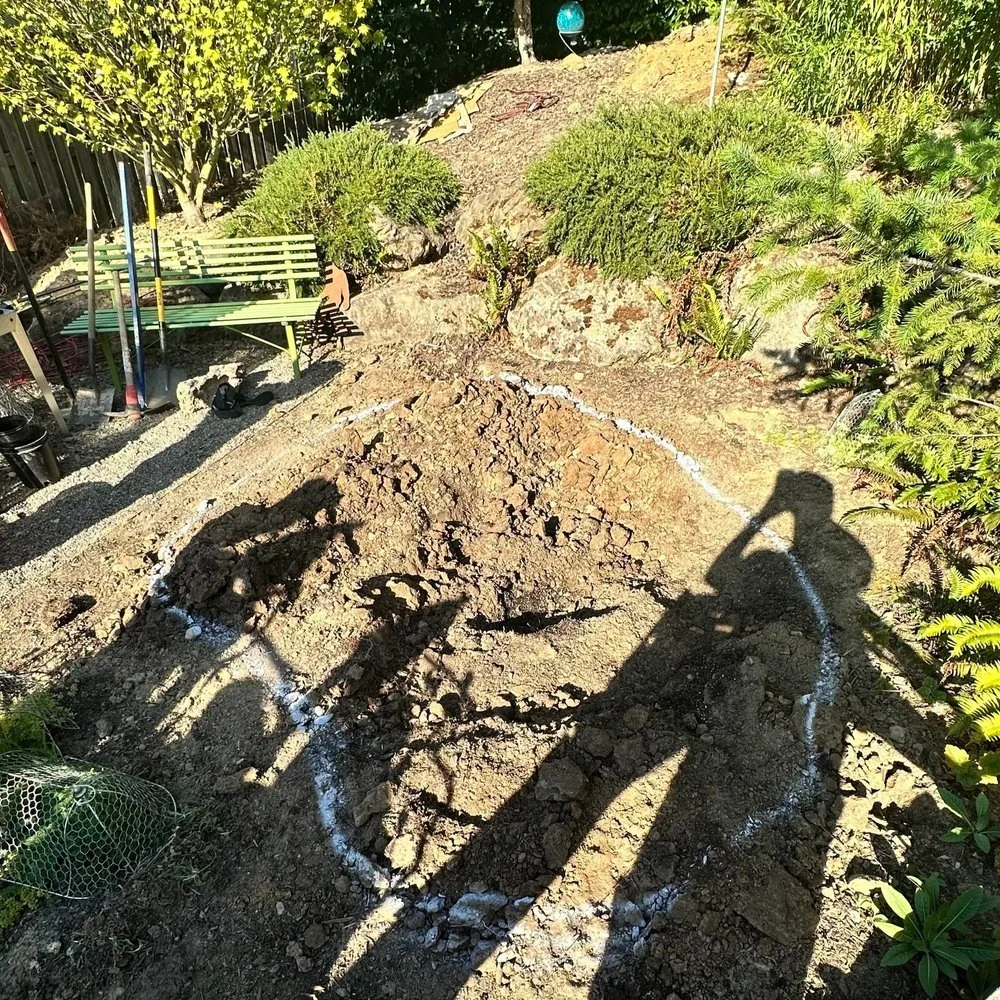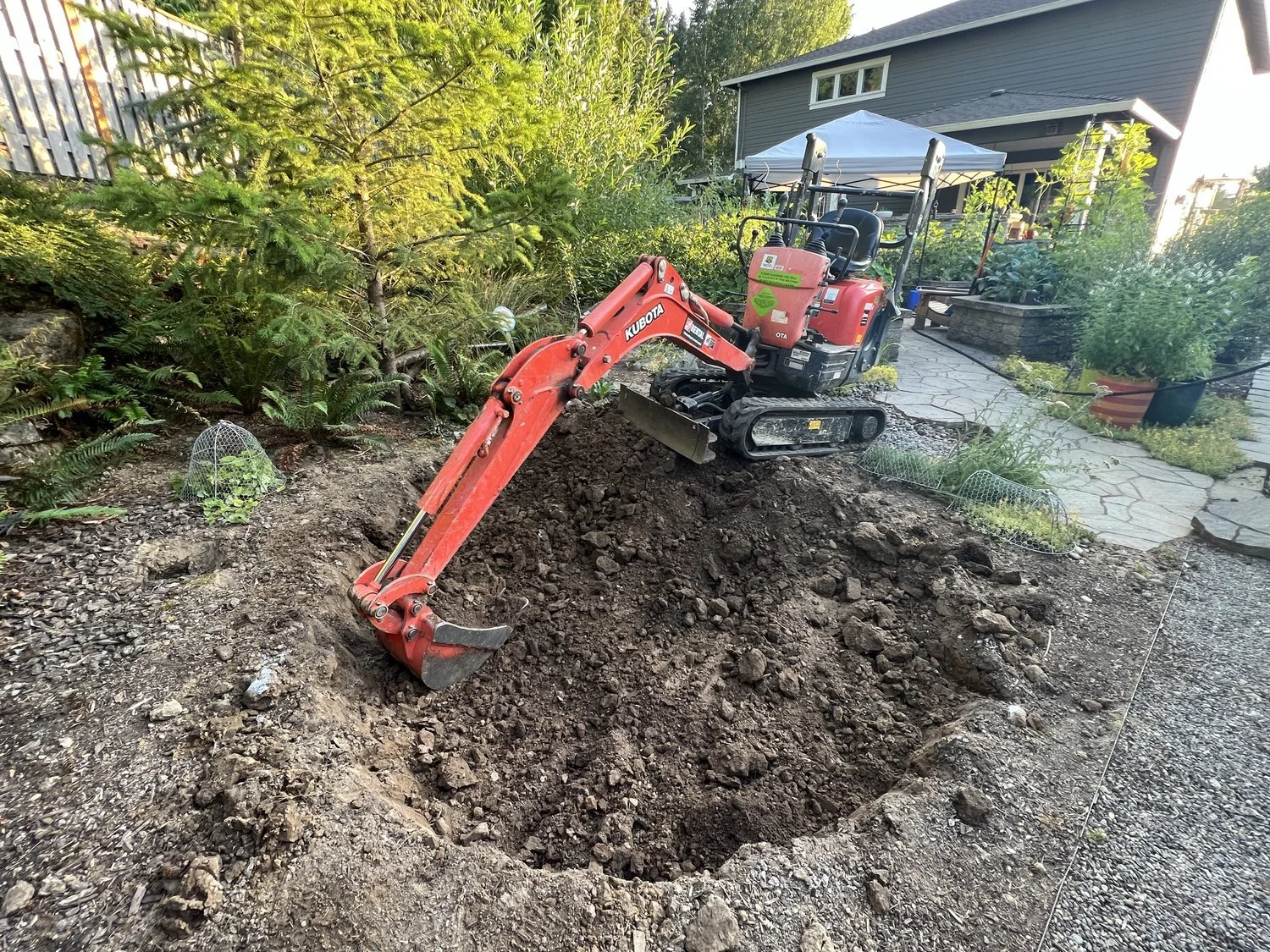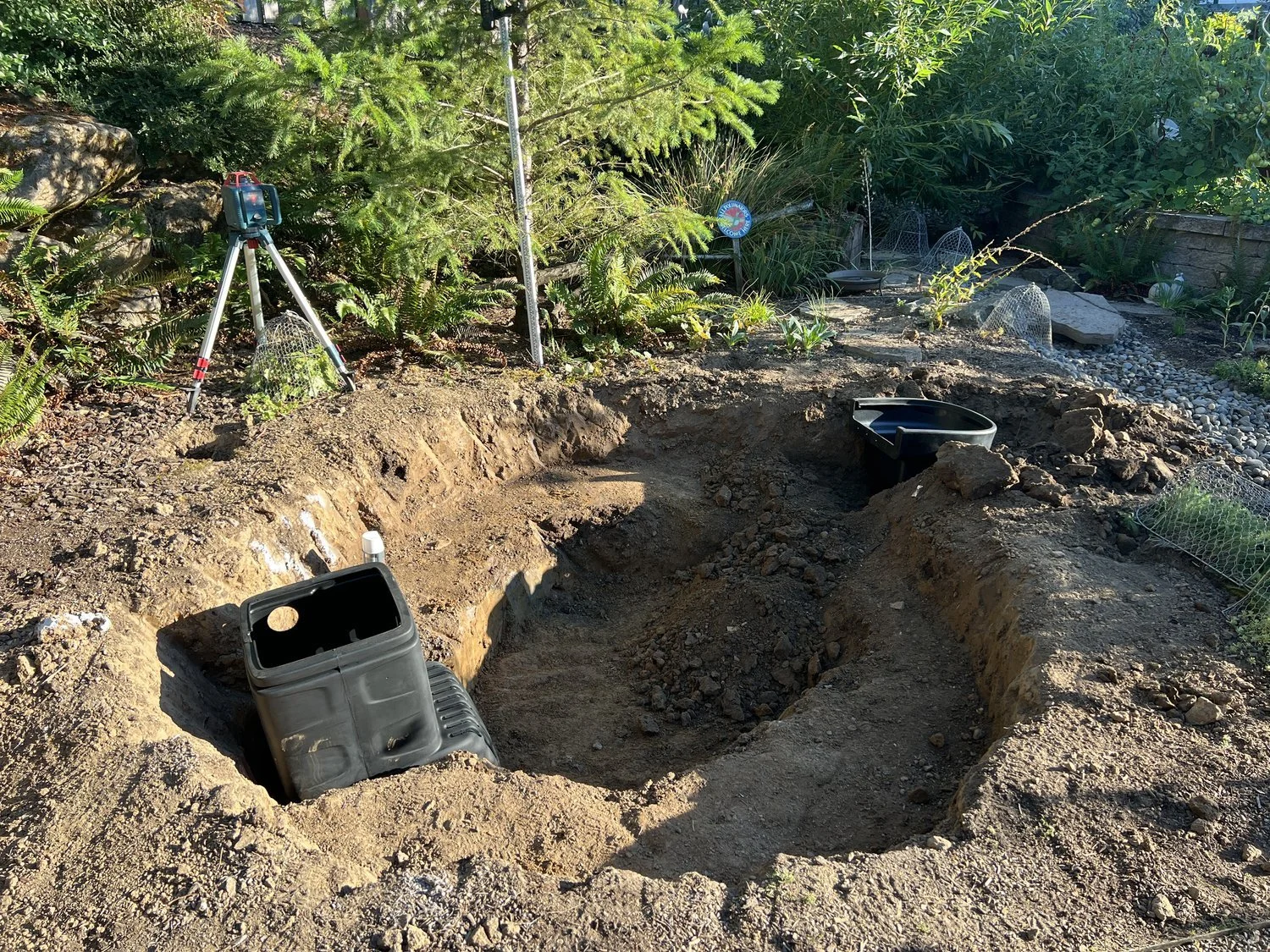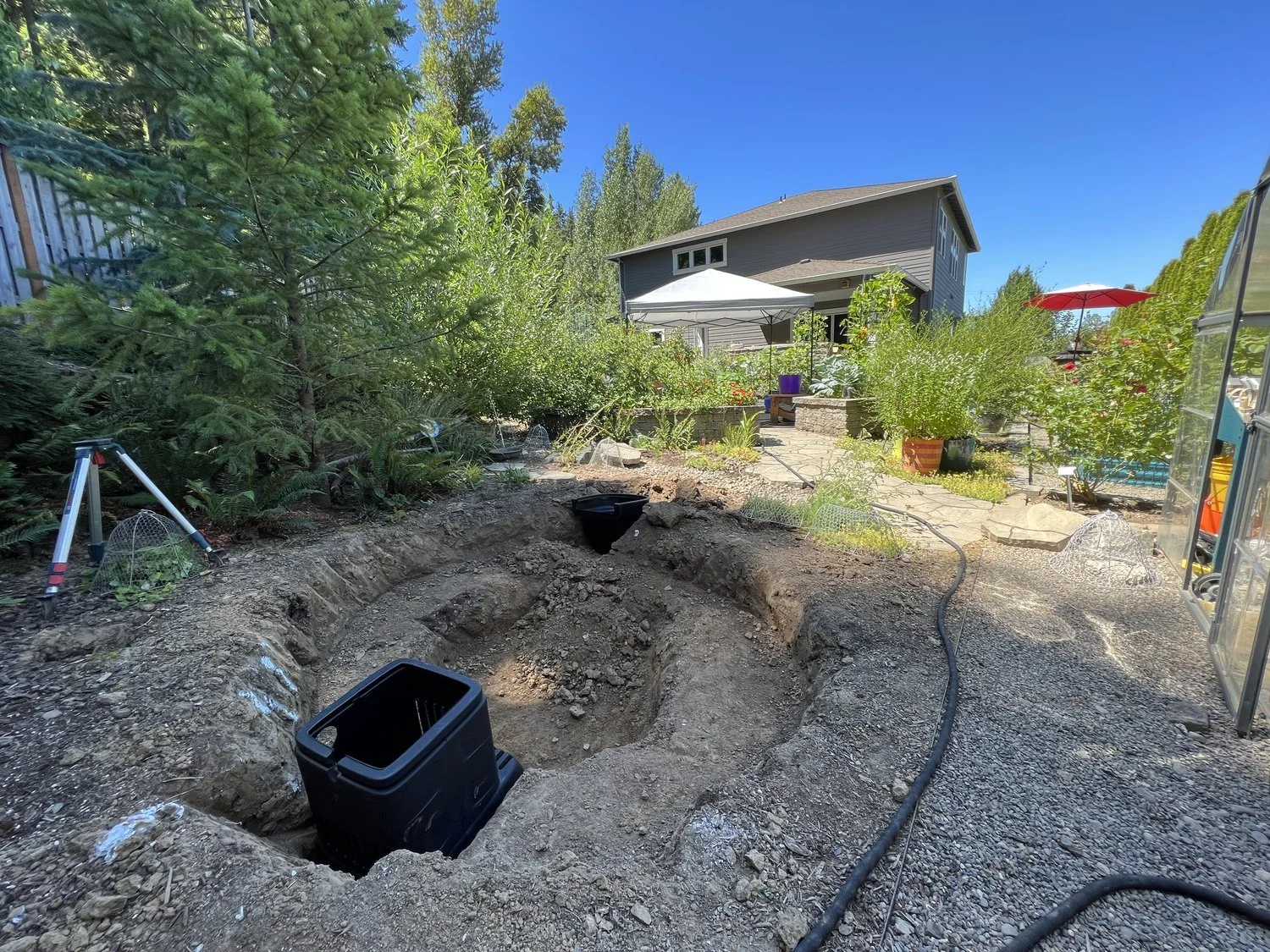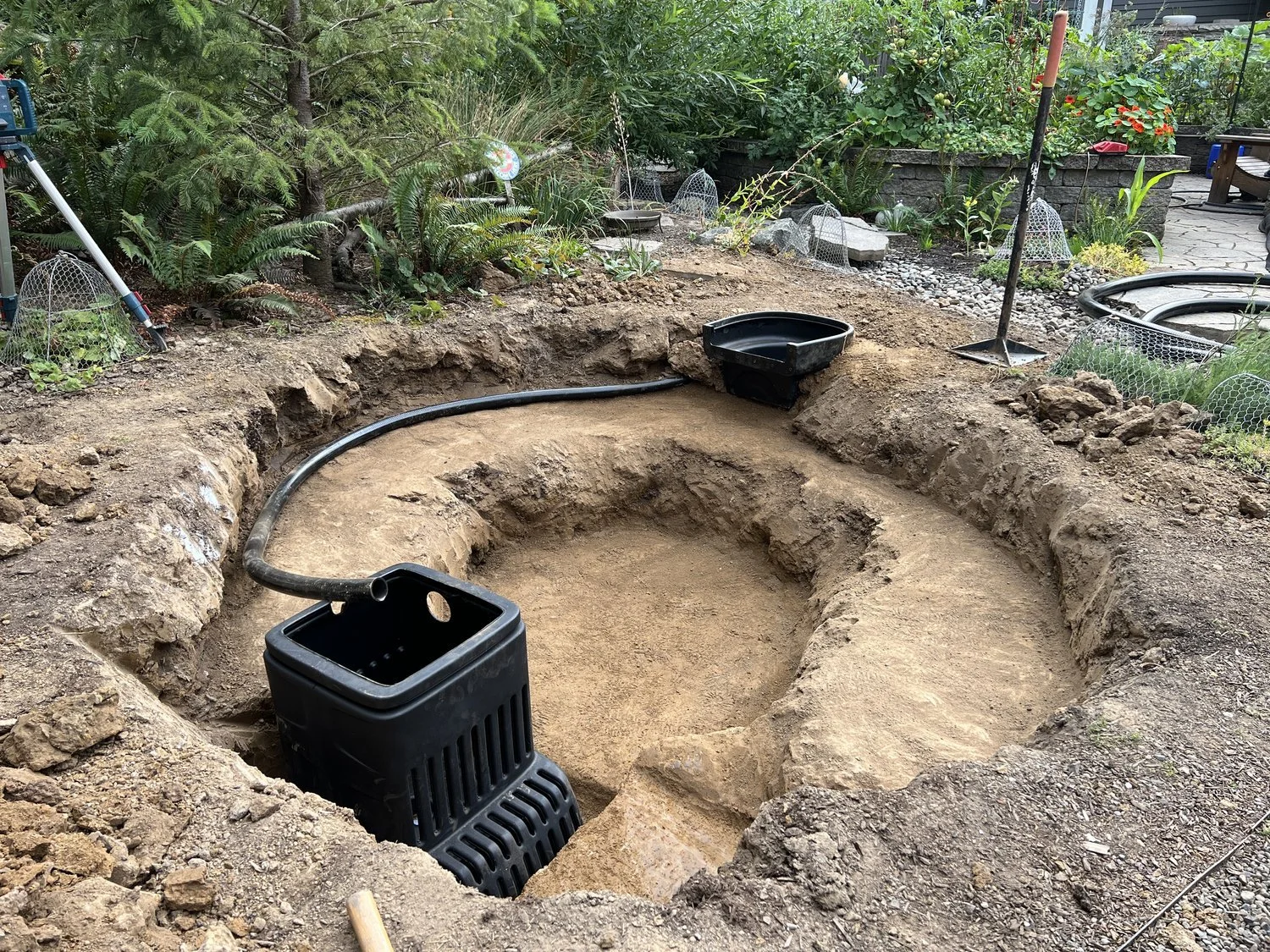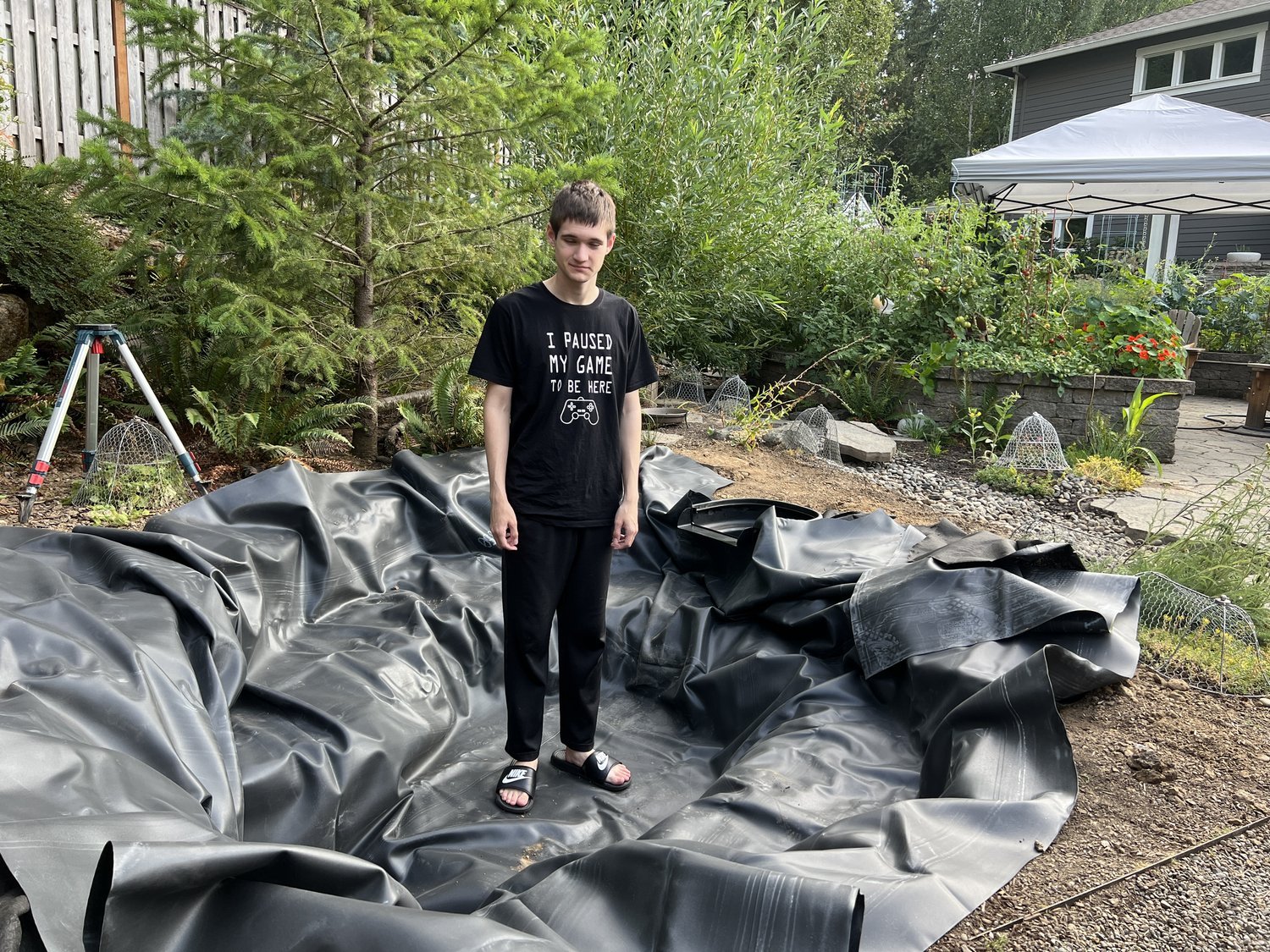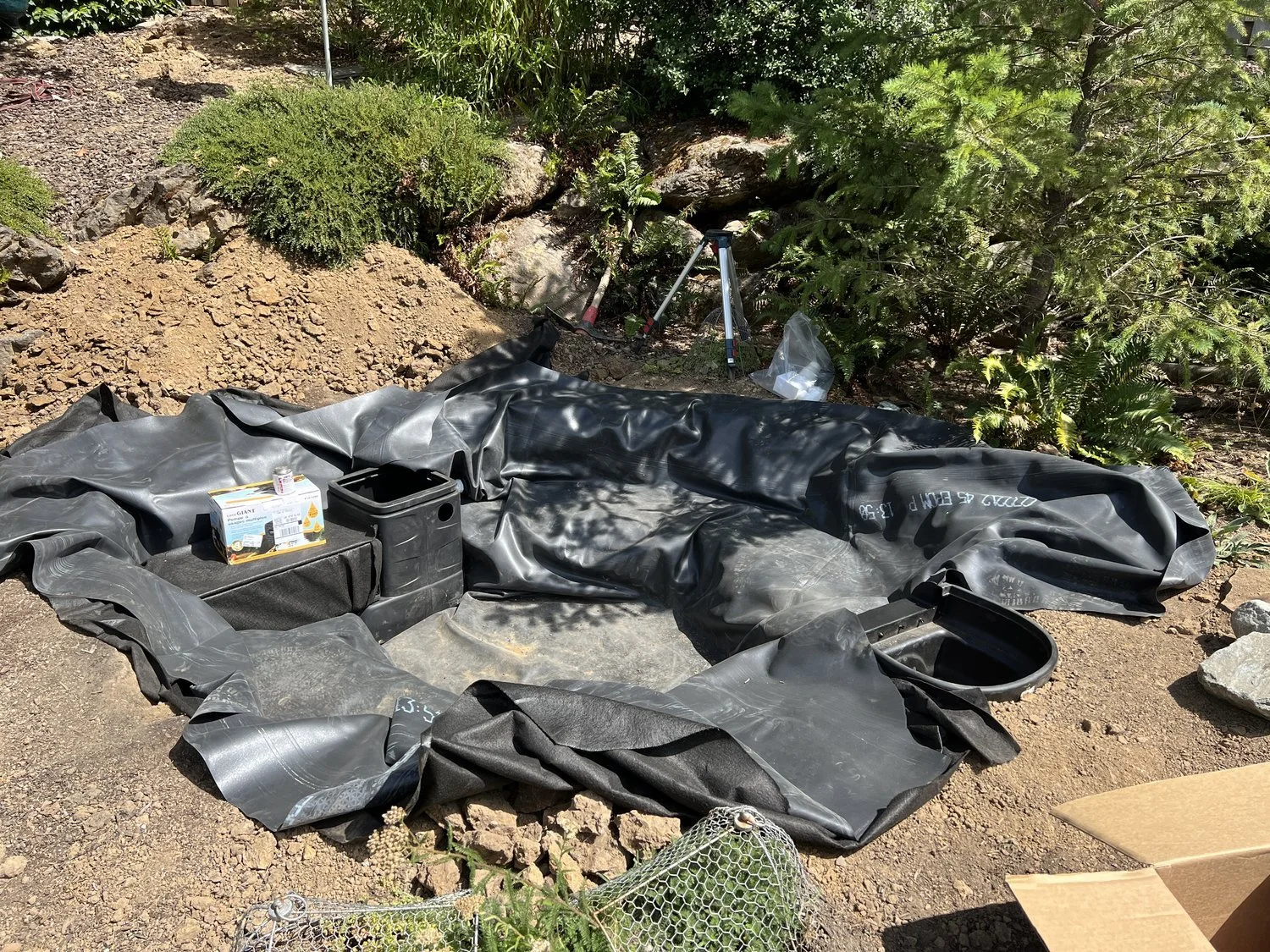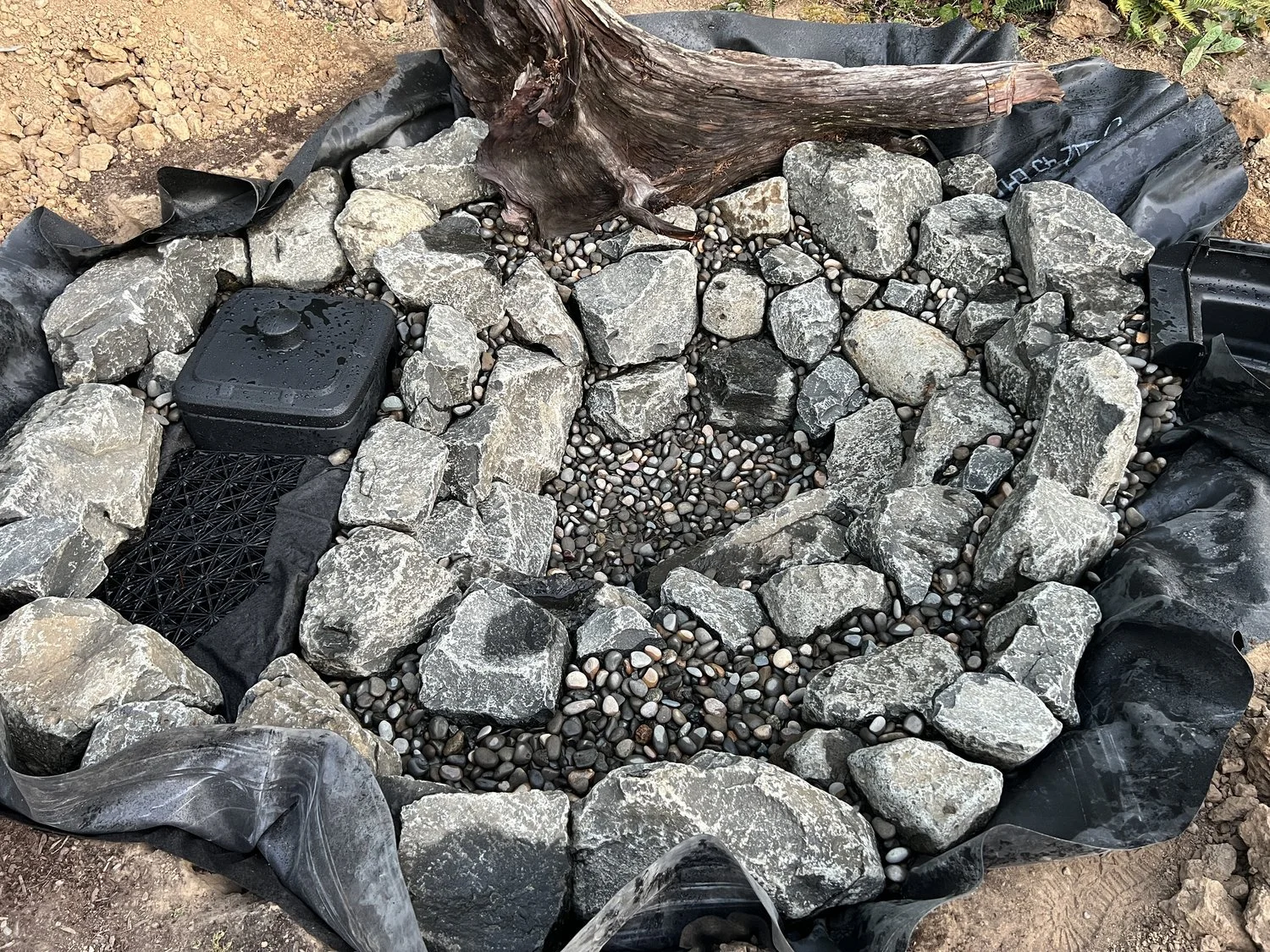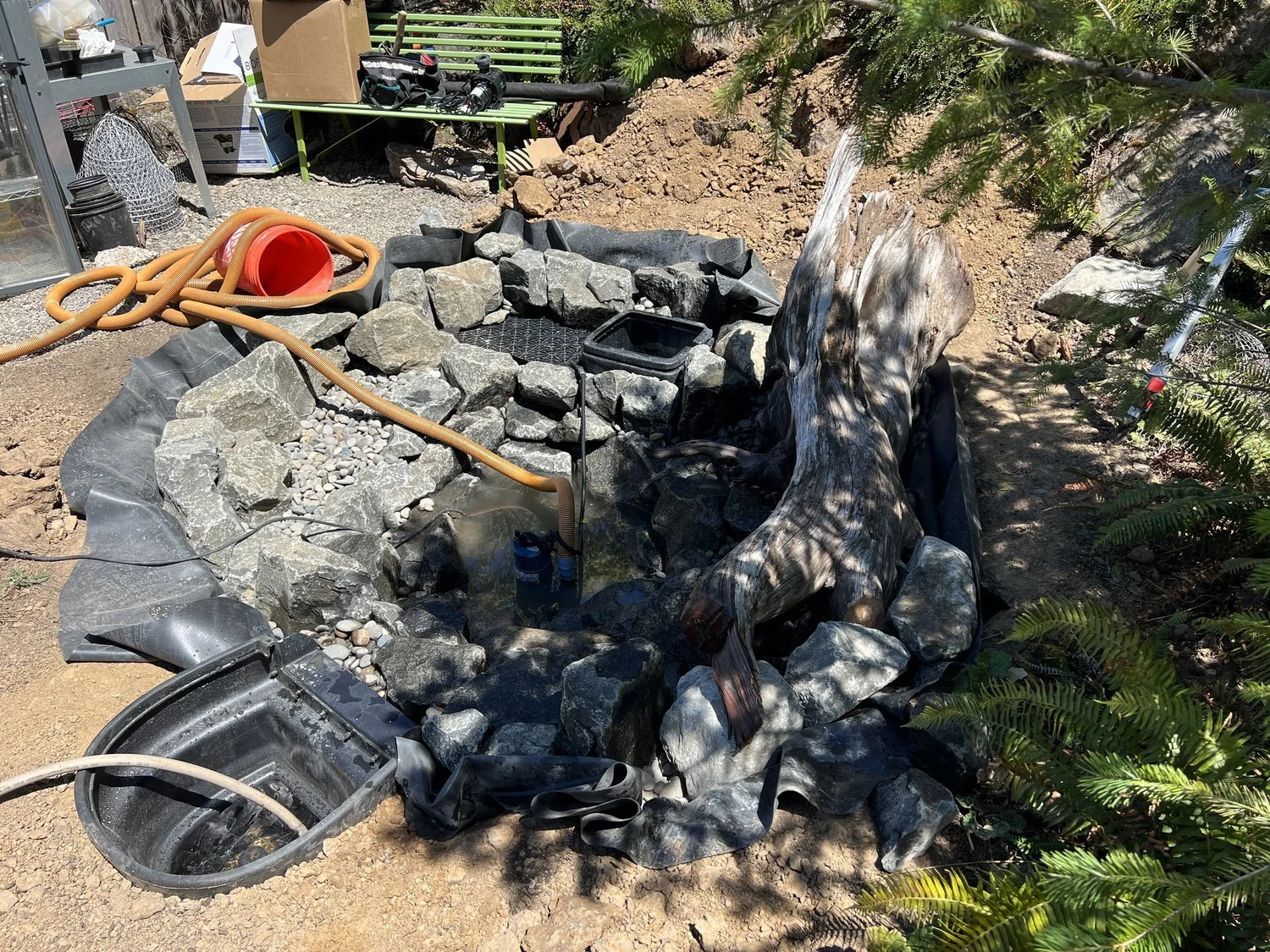Our Pond & Dragonfly Nursery
Finished pond - July 2023
As our backyard habitat has matured, we have seen a dramatic increase in the number of wildlife species that stop by or call our garden home. As a naturalist, dragonflies are my biggest passion and when not at home we are usually traveling Oregon to find and photograph as many species as possible. We wanted to enhance our own backyard habitat to encourage more Odonata visitors, so in July 2023, we worked with Eureka Falls again, this time to install a wildlife pond. Once compete, we visited Hughes Water Gardens and purchased aquatic plants all native to the Willamette Valley ecoregion.
And… just a few weeks after it was finished, we watched Shadow Darners laying eggs in the new pond! The very next season in 2024, we spotted several nymphs, a few different species emerging from both our pond and waterfall, and more adults stoping by to oviposit new clutches of eggs at our ponds.
It has been a real joy observing these animals in our own garden.
a Shadow Darner ovipositing at our pond
a Flame Skimmer emerging from our pond
a Libellulidae nymph
a rainy day at the pond
a skimmer nymph!
Inviting Odonates to Your Own Garden
Build a Pond
Dragonflies must have water. The larger the pond, the more species you'll attract. Give your fish-free and filtered pond shallow sides and a center depth of about two feet. Place it in partial sun and add a mix of submerged, floating and emergent plants such as grasses or reeds where dragonflies can roost and lay eggs.
Add Plants & Perches
Vegetation is important for cover and hunting. Near the pond, plant native grasses, shrubs and flowers where dragonflies can rest or hunt for insects. Add some flat, light-colored rocks where dragonflies can warm themselves in the sun. They love to bask! Some rogue sticks or perches will also draw their attention.
Let it Be
Leave your pond somewhat messy. Netting out pond debris can disturb dragonfly eggs or insect prey. Leaf litter on the bottom of your pond gives aquatic dragonfly nymphs a great place to hide and hunt. Make sure the filtration on your pond is shielded to prevent dragonfly eggs or nymphs from being sucked into the filter.
Avoid Chemicals
Water isn’t enough to attract our odonate friends - they need food! Chemical usage in a garden greatly harms and reduces the number of insects, which are needed for a balanced and healthy ecosystem. And it’s not just their prey, dragonflies are insects too! Switch to Integrated Pest Management (IPM) practices and avoid chemicals.
